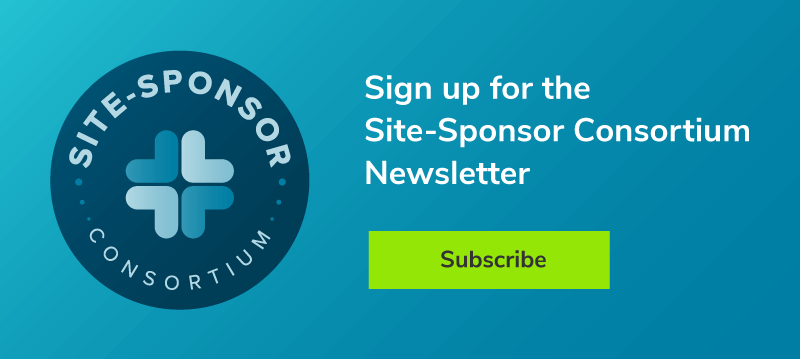Early Phase IRB Review
Reliable Timelines, Rapid Support, and Expert Review
Safeguard participants and maintain momentum with accelerated review timelines, consistent expertise, and responsive support tailored to early phase research needs.
Contact Us to Get StartedEarly Phase IRB Review
- Dedicated daily panels with extensive expertise in early phase research
- Direct access to dedicated client success coordinator who knows your organization and your studies
- Responsive support when you need it
- Rapid review turnaround times
- IRB review and approval issued prior to FDA 30-day investigational new drug (IND) wait period
- Documents released immediately following IRB approval
Craft comprehensive, easy-to-read informed consent forms (ICFs) and make study activation more efficient.
Meet Study Milestones with Reliable Turnaround Times
Rely on accelerated review processes with an emphasis on quality.
Turnaround Times for Early Phase Research
| Review Type | Turnaround Time* |
|---|---|
| New protocol and consent (full board review) | 5 business days |
| New site | 2 business days |
| Amendments and modifications | 4-5 business days (full board) 2-3 business days (expedited) |
| Recruitment and subject-facing materials | 1-2 business days |
*Turnaround times reflect complete submission to IRB document distribution.
Please note: Turnaround time is dependent upon complete and accurate submission of study documents. Any follow up requiring a response may extend this turnaround time.
Prepare your IRB submission for maximum efficiency with our guide to “Phase I Research: IRB Considerations.”
Reliable Expertise for Early Phase Research
Ensure proper oversight with Advarra’s trusted experts and processes optimized to support studies of any size in every major therapeutic area.
-
Knowledgeable and Responsive
Advarra’s dedicated early phase team provides rapid support when you need it. There’s no need to navigate a confusing phone tree when you’ve got your point of contact’s direct line.
-
Predictable Service with Repeatable Results
While every study is different, Advarra’s operational processes are designed to provide reliable turnaround times. We’ll keep you informed every step of the way.
-
Technology-Enabled Solutions for Efficient, Transparent Processes
The Advarra Center for IRB Intelligence (CIRBI) Platform is the industry’s most advanced and proven online IRB/REB platform. CIRBI enables real-time access to submit and track projects 24/7/365.
Leverage Advarra’s research services and technology solutions to streamline early phase operations and maintain compliance.
Review Solutions to Meet the Most Demanding Timelines
Rely on Advarra’s deep therapeutic expertise with complex and niche study specialties in pediatrics, CNS, cardiology, oncology, human abuse potential, and others.
Early Phase Bioavailability/Bioequivalence (BA/BE)
Advarra understands the unique demands and requirements of fast-paced early phase and Phase I BA/BE research and its nuances. Partnering with many of North America’s largest and most successful clinics, Advarra’s reviewers facilitate rapid turnarounds while maintaining the highest quality in research participant protection, reliability, and service.
First-to-File (FTF) Trials
The first company to submit an abbreviated new drug application (ANDA) with the FDA has the exclusive right to market the generic drug for 180 days. Therefore, Advarra has an accelerated review process to help ensure you meet your milestones. Contact us now to make sure your FTF trial is set up for success.
Minimal Risk Research and Expedited Review
Research that poses no more than “minimal risk” to participants may be eligible to receive expedited review. Most new site submissions are also eligible for expedited review. Advarra’s dedicated expedited reviewers evaluate new submissions daily. A new minimal risk protocol and informed consent can be reviewed within 2 business days or less.
Cosmetics Research
Timeliness is critical in cosmetics research, and IRB review requirements are not always clear. Advarra offers dedicated IRB expertise and support services to help ensure reliable timelines and knowledgeable oversight of this specialized type of research.
Early Phase Review FAQ
Does Advarra require sentinel dosing for first-in-human (FIH) clinical trials?
Yes, Advarra generally requires that FIH clinical trials include sentinel dosing. The IRB will confirm that sentinel dosing is described in the submitted protocol. If there is no intention for sentinel dosing to be performed in an FIH trial, a detailed rationale should be provided for the IRB’s consideration.
Is an IND required for generic BA/BE studies?
A BA/BE study in humans does not require an IND if all of the following conditions are met:
- The drug product does not contain a new chemical entity (21 CFR 314.108), is not radioactively labeled, and is not cytotoxic.
- The dose (single or total daily dose) does not exceed the dose specified in the labeling of the approved version of the drug product.
- The sponsor meets the requirements for retention of test article samples and safety reporting (21 CFR 320.31).
Can a study be approved if an IND is pending?
Yes; however, for studies requiring an IND application, it is the IRB’s expectation that study activities (including advertising, recruitment, and screening) will not begin until after the end of the 30-day FDA review period or after receiving notification from FDA.
What does the IRB consider when evaluating a proposed compensation plan for participants in Phase I research?
Regulations require the IRB to ensure the investigator seeks consent only under circumstances minimizing the possibility of coercion and undue influence.
The IRB will generally permit subject compensation unless such payment presents the potential for undue influence. Compensation should be based on time invested and inconvenience; it should not be considered a benefit or a way of offsetting risks. The IRB permits completion bonuses as long as the bonus does not exceed 25% of the total study compensation amount. IRB review of compensation plans will focus on whether the payment may compromise a participant’s evaluation of the research-related risks or may affect the voluntariness of their decision to enroll or remain in the study.
The informed consent form (ICF) should include payment schedule details, including the amounts and timing of disbursement (e.g., after each visit, weekly, monthly). Payment should accrue as the study progresses and not be contingent upon completion of the entire study. Note that reimbursement for study-related expenses a participant might incur during trial participation (e.g., parking, hotel, transportation) is not considered compensation.
When can I start recruiting participants for an upcoming study, and what is reviewed by the IRB?
Study-specific recruitment is not permitted until the IRB grants approval of the protocol, ICF, and materials/methods to be used for recruitment.
For more information on Recruitment, please review our IRB Handbook in the “Reference Materials” section in CIRBI (login required).
Do minor violations/deviations need to be reported to the IRB?
There are many unplanned or unintentional violations/deviations or changes in study status that do not cause harm, place participants at increased risk of harm, or adversely affect data integrity. The IRB does not require reporting these minor violations/deviations. Examples of minor violations/deviations that do not need to be reported may include the following:
- Out of window visits
- Study procedures conducted out of timeframe
- Subject failure to initial each page of the ICF (as applicable)
- Subject failure to return subject materials (e.g., diaries, journals).
- Administrative hold on a study not related to safety issues
When would a cosmetics study require full board review?
If the study involves procedures that are deemed more than minimal risk (e.g., biopsy, risk of serious side effect, procedures that could cause harm), the IRB will need to review it at a fully convened meeting.
What types of cosmetics research does the IRB have experience with?
The IRB’s experience includes (but is not limited to) studies involving:
- Baby wipes
- Cosmetic products
- Facial peels
- Hand sanitizer
- Lotion
- Shampoo/conditioner
- Sunscreen
Featured Resources
Research Involving Cosmetics: What you Need to Know
Find out how the Food, Drug, and Cosmetic Act defines cosmetics and how a test article can be subject to multiple FDA regulatory frameworks.
IRB Review of Phase I Research: Balancing Ethics and Efficiency
Find out how to address Phase I research challenges to enable efficient IRB review and timely study startup.
Informed Consent: When, Why, and How It’s Obtained
Aside from being a regulatory and ethical requirement, informed consent is a good way to ensure participant knowledge and develop a foundation trust between researcher and participant.


